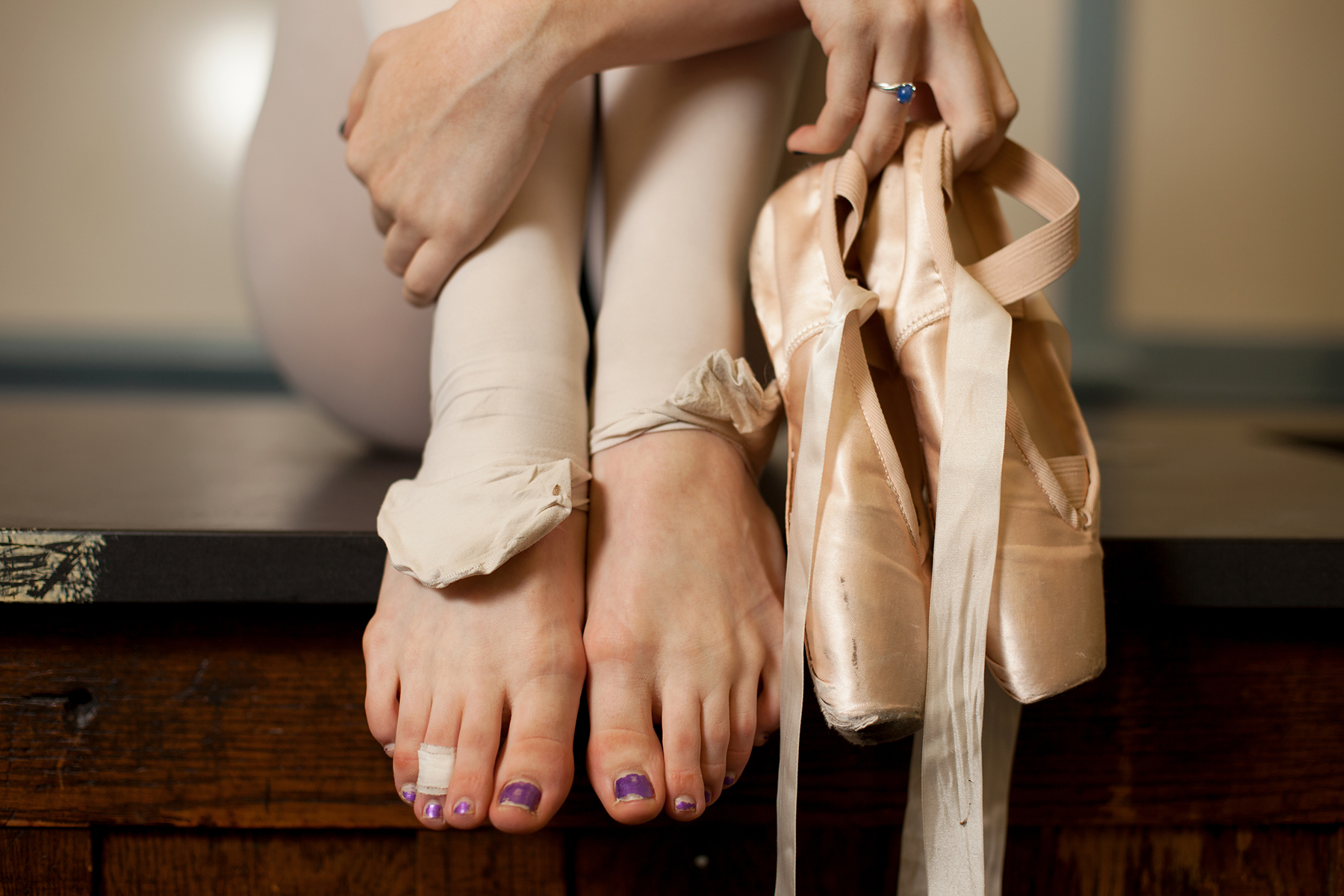12
November
10 Things a Dance Teacher Should Never Say or Do to a Student
 Hats off to Erin Long-Robbins. Erin is someone we’ve followed for some time. Her blogs are positive, educational and inspirational.
Hats off to Erin Long-Robbins. Erin is someone we’ve followed for some time. Her blogs are positive, educational and inspirational.
At the Barre with Miss Erin An Honest Discussion About All Things Dance 10 Things a Dance Teacher Should Never Say or Do to a Student November 12, 2013 Erin Long-Robbins As dance teachers, we all get frustrated when a student doesn’t live up to what we believe to be their potential. However, the way you address your frustration is what can make you an inspiring teacher. As a student, I know the good things my former teachers said were wonderful, but passed from my mind quickly. Unfortunately, the negative things they said, most of the time offhandedly, were devastating and have haunted me throughout my life. Because of this, I am so careful of what I say to my students and how I say it. Just like there are things that students should never say to a teacher, there are definitely things that teachers should never say to their students. 1. Comparing one student to another in a negative way. ‘Angela, why can’t you get your leg as high as Connie in arabesque?’ I have heard so many teachers say things like the above. All you did was inspire negative competition between your students. Competition is such an important part of being a dancer and there are so many ways to encourage students to look at competition in a healthy way. What I say instead? ‘When I was in college, my best friend and I always stood beside each other. I would try to do as more pirouettes than she did and she would try and get her leg higher than mine in développés. It made us better friends, made us both work harder and made us both better dancers. Each one of you has something that others can admire, whether it is great technique, memorizing a combination quickly or having beautiful port de bras. Learn from each other and be inspired.’ 2. Yelling at a student who is late for class. Being late for a dance class is not just disruptive, but potentially dangerous. My students have to stand at the door and wait for permission to enter when they are late; they also have to sit and observe class if they are more than 10 minutes late. However, I calmly explain to the student that he or she has missed too much of the warm-up and could get injured if they were to participate. If it happens more than once, I talk to the parent and ask why. Sometimes moving a child to a class that meets on a different day or time is an option. If it is chronic, I’ve been known to run after parents to have a serious discussion about tardiness, but I never yell at a child for something over which they have little control. 3. Talking about weight issues publicly. I have seen it all from public weigh ins to criticizing what a student packed for lunch to, ‘See this costume? If you don’t fit into it, you can’t dance that part!’ All awful and so unnecessary. Weight is a major issue in the dance world and it is important to discuss it with your dancers, but it’s your job to make it a positive and private conversation. I always start by letting the parents know that weight has become an issue and asking them if they would like to address it or if they would like me to do so. I schedule a private meeting with the student and then ask the student the question, ‘What are your goals for dance?’ If they tell me they just do it to have fun, I let the conversation drop with, ‘I’m so glad you choose to spend your free time with me,’ and give them some corrections on which I’d like to see them work. If they tell me they want to have a career in dance, I then openly and honestly start the conversation of what they could do to be healthier. 4. Calling a student stupid. We all feel it building up sometimes and some days I just want to scream, ‘How hard is to remember to put your arm in front of you at the barre?!!’ That’s when I take a deep breath. I’ll be honest, a few times I even had to excuse myself and leave the room to decompress so I wouldn’t explode. I usually address the entire class and tell them that they should all get notebooks. I tell them corrections and choreography that they get in each class or in rehearsals should be written down and then read through before each class to keep their corrections fresh in their minds. I remind them that it is their responsibility to learn, apply and maintain their corrections and only by doing so can they improve. If it is chronic, I pull the dancer aside after class and tell them that I have given them a correction too many times. I’ll tell them that I won’t be giving them any more feedback until they fix the issue. This actually usually works in several ways. It shows the student that they need to be responsible and it can give them some time to process and apply that correction without the distraction of too much other information. 5. Addressing a parent’s bad behavior with the child, especially in front of their peers. It’s inevitable, parents will eventually say something to you that will be impolitic and will make you angry. It is sometimes very difficult because you’re human and your feelings may be hurt, but you should never take that out on the child. You are best to deal with the parent by scheduling a meeting so you can both clear the air. However, if it involves the child directly or something they told the parent, I recommend inviting the child to at least part of the meeting as well. Being honest with your students is so important. ‘Your mother and I had a conversation the other day. If you felt that way, I really wish you would have come to see me so we could talk things over. Always feel you can come to me. Let’s discuss it now, I’ll explain my decision and then you can ask me any questions you have,’ can defuse an unpleasant situation and lead to an open, positive and productive discussion. 6. Telling a student they will never be a dancer. I’m not really sure what the reasoning is behind this statement, but it’s used a lot in the dance world. Perhaps to inspire students to prove you wrong? I guess that could work for a small handful of students, but for most students, I’ve found being positive is the only way to go. Too sometimes teachers say, ‘You’ll never be a dancer if you don’t (fill in the blank).’ However, you already lost the student with the first part of the phrase and they’ll never hear the rest of it. Try putting it in a positive way such as, ‘The best and most successful dancers do this and I want you to be successful and the best dancer you can be.’ 7. Asking one student to correct another. ‘Class, who can tell me what Angela is doing wrong?’ This is terrible and it instills derision amongst your students. However, it is important for students to learn to self-correct. What I do instead? Play the I’m the Student, You’re the Teacher Game. I execute a step poorly and ask the students what I’m doing wrong. Nine times out of the ten, the student who did it wrong will raise their hand, I’ll call on them and usually they can tell me what I’m doing wrong. Then I ask them to show the class how to do it properly and help them to do so. 8. Using the phrase, ‘Because I said so.’ We are educators; how can we ever expect a child to learn if we don’t explain to them why? I always try to tell my students why I’m asking them to do something. If their arm is behind them at the barre, I show them what it does to their placement. If they are in their heels, I explain how as dancers we need to change directions quickly, how they won’t have the support of the barre in the center and how certain muscles like their rotators can only be fully engaged with the weight forward. 9. Telling a student that something they are struggling with is easy. What you are basically saying to the student is, ‘You’re stupid. Why can’t you get it?’ What is easy for some dancers is difficult for others. I know as a teacher, the things that came easily to me are the things I find hardest to teach since I never really had to work at them as a student. There are many things I did have to work hard for and with which I struggled, so I try to remember that as an educator. 10. Humiliate a student. One of the worst things that ever happened to me as a student was when one of my teachers got up and did a mean spirited impression of me doing a step I had been struggling with, not just in class, but on stage in front of the whole school, the other teachers, parents and the board of directors. I know that it was partly from frustration because I just couldn’t do what she was trying to get me to do and that she was trying to make me a better dancer, but I never really fully recovered from it. It also did not portray her in a good light either. This was actually one of her favorite tactics to try and get something from her students and it was usually someone else she chose to target, but that day it was me and it was public. Humiliation instills fear of trying, sadness and frustration … it did not make me better, it shut me down as a dancer and it’s something I vow never to do to my student. Many of my colleagues, students and even former teachers ask me why I chose to go into the profession as a teacher and not as a dancer. I had three different offers from three different professional companies in my lifetime, so it wasn’t like I wasn’t good enough. The first one I turned down because it wasn’t the right time and I was too young. The second, I turned down because I was burnt out and disenchanted with the world of ballet. The third, because I didn’t think I could wait to teach. I wanted to be positive, yet firm and to help create the next generation of dancers, choreographers and ballet enthusiasts. My most wonderful mentor told me, ‘If you really think the dance world needs to be more positive and constructive, go and be that positive change.’ I like to think that that is what I am doing for my students. In conclusion, every teacher brings their own personal style to the classroom and I certainly don’t expect anyone to substitute my teaching methods for their own. The above are just my own observations on what works best for my students and me. Happy teaching and the best of everything to your students!


Thank you , my dance teacher did all of those things and more. It affected my entire life. She is still open and thriving.